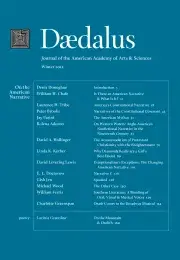Is There an American Narrative & What Is It?
Nearly four centuries of American history have witnessed the evolving conflict between two competing sets of values: a belief that acting on behalf of the common good should guide social and political behavior, and a belief that unfettered individual freedom should dominate political and social life. Tracing this conflict from Puritanism through the American Revolution, the Civil War, the rise of industrialism, the Progressive Era, the New Deal, the Great Society, and the conservative revival of the Nixon/Reagan era, the essay reveals this clash of values as pivotal to understanding the narrative of American history, with contemporary political battles crystallizing just how basic this conflict has been.
Who are we? Where have we been? Where are we going? Can we even agree on who “we” includes? At no time in our history have these questions been more relevant. The American political system seems dysfunctional, if not permanently fractured. A generational gap in technological expertise and familiarity with the social network divides the country to an even greater extent than the culture wars of the 1960s and 1970s. Soon, more “Americans” will speak Spanish as their first language than English. For some, access to health care is a universal right, for others, a privilege that must be earned. Rarely– and certainly not since the Civil War–have we been so divided on which direction we should be heading as a country. How can there be an American narrative when it is not clear what it means to talk about an American people or nation? Two overriding paradigms have long competed in defining who we are. The first imagines America as a community that places the good of the whole first; the second envisions the country as a gathering of individuals who prize individual freedom and value more than anything else each person’s ability to determine his own fate. . . .
